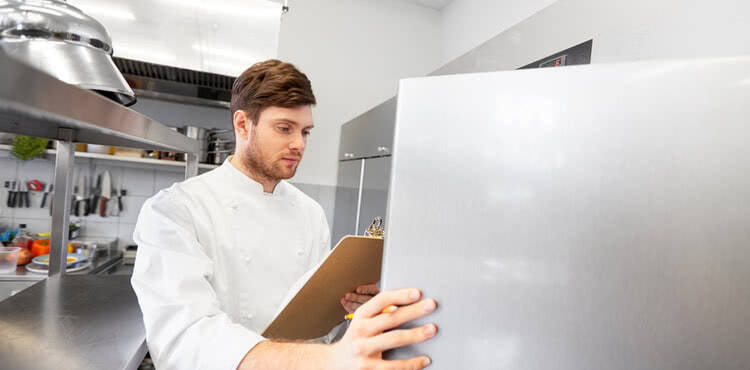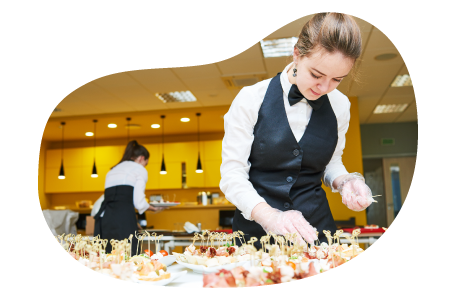Protect your business with food contamination and spoilage coverage

Food spoilage is a major concern for restaurants and other businesses that work with food. If a refrigerator breaks down, replacing spoiled inventory could cost thousands of dollars. Or worse, if a customer gets sick after dining at your restaurant, you could be held liable for medical expenses and you could be forced to close your business.
Adhering to health codes, ensuring employees are properly trained, and protecting your business with food contamination and spoilage insurance should play a critical role in your risk management strategy.
What food contamination and spoilage insurance covers
Food contamination and spoilage coverage is an addition to your commercial property insurance or your business owner's policy that applies to the "perishable stock" at your business. Perishable stock includes items that:
- Must be maintained under controlled conditions for preservation
- Are susceptible to loss or damage if those conditions change
Food contamination and spoilage insurance reimburses businesses when power outages or equipment failures ruin perishable items. It also covers employee medical testing and equipment cleaning costs if your business is closed because of food poisoning or other illnesses. It can also reimburse you for lost revenue and pay for the costs of helping you restore your reputation.

The limitations of food contamination and spoilage insurance
How much lost inventory and revenue your food contamination insurance policy will cover depends on your deductible, but there are events that it will typically not cover.
For example, if an employee intentionally unplugs, disables, or destroys heating or cooling equipment that leads to food spoilage, a food contamination policy typically won’t reimburse your business. Most policies also do not cover inventory lost because of fuel shortages, government orders, military actions, or nuclear hazards.
Food contamination and spoilage insurance covers only perishables such as produce and dairy products – not dried or canned goods. It also won’t help you if a customer sues over food poisoning or an injury, which is why all food and beverage businesses need general liability insurance.
Restaurants with delivery service, caterers, and food trucks will also want either commercial auto insurance or hired and non-owned auto insurance since personal auto insurance often won’t cover damages from accidents that happen when driving for work.
Most states will require that food service businesses with employees carry workers’ compensation insurance to cover work-related injuries. If you serve alcohol, consider liquor liability insurance.
Compare food service business insurance quotes from trusted carriers with Insureon
Complete Insureon’s easy online application today to compare insurance quotes for your food service business from top-rated U.S. carriers and protect your business. Once you find the right policies for your business needs, you can begin coverage in less than 24 hours.
Hannah Filmore-Patrick, Contributing Writer
Hannah is a contributing writer with a diverse writing and content building background. She's worked on topics from technology to insurance. She's competent with both language and SEO, and continues to work with a variety of business verticals to create engaging, optimized content.









